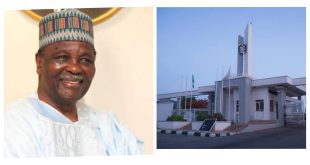By Funmi Ojo, OYO
Alhaji Shuaib Oyedokun, a prominent figure in the People’s Democratic Party (PDP) and member of its Board of Trustees, has officially left the party.
In a letter released late Thursday night in Osogbo, Oyedokun announced his decision to defect to the All Progressives Congress (APC), expressing his belief that his contributions would be better recognised within the APC.
Oyedokun highlighted the seriousness of his departure from the PDP, noting that it was a carefully considered decision made after consultations with his supporters within the party.
His resignation letter, addressed to the National Chairman of the PDP and routed through the ward, local government, and state chairmen of the party, further elaborated on his reasons.
“As a functional member and leader of PDP (Ward 13, Jagun/Osi-Bale Ode, Odo-Otin South Local Government, Osun State), whose high electoral productivity and value have been credibly and positively acknowledged in my ward, across the local council, state, and country-wide for the enhancement of the fortune of the PDP, I have the honour (though with pain) of announcing the renunciation of my membership of the party on principle, having observed that the ideals of we, founding members, had been sorely contaminated,” Oyedokun stated.
He added, “In taking this step, which is not without due consultation with my loyal supporters in the PDP, I have decided to shift my allegiance to the All Progressives Congress (APC), where I believe my experience, efforts, and leadership roles would be valued and appreciated.”
Oyedokun’s move to the APC marks a significant shift in the political landscape, given his longstanding association and contributions to the PDP.
His decision underscores ongoing dynamics and realignments within Nigerian political parties as members seek platforms they feel best align with their principles and where their efforts are most appreciated.
The implications of Oyedokun’s defection will likely unfold in the coming weeks, influencing both the internal structure of the PDP and the broader political strategies of the APC.
This development also highlights the importance of party loyalty and recognition in the careers of Nigerian politicians.
 National Telescope national telescope newspaper
National Telescope national telescope newspaper



